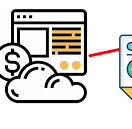How Consumption-Based Cloud Licensing Is Reshaping Reseller Business Models
The shift to consumption-based cloud licensing is transforming reseller models, emphasizing service-oriented strategies over traditional product sales. Resellers now face revenue volatility, reduced margins, and increased dependence on cloud providers like AWS and Azure. To adapt, they focus on value-added services such as cloud migration, cost optimization, and managed services. Successful resellers also leverage co-selling partnerships, specialize in niche markets, and adopt outcome-based pricing to align incentives with customer success. While challenges like competing with direct sales persist, resellers embracing innovation and expertise can thrive as strategic partners, ensuring relevance and growth in the evolving cloud ecosystem.
CLOUD COMPUTING
Dr Mahesha BR Pandit
4/7/20243 min read


How Consumption-Based Cloud Licensing Is Reshaping Reseller Business Models
The transition from traditional licensing to consumption-based cloud models is not only impacting Independent Software Vendors (ISVs) but also reshaping the role of resellers in the cloud ecosystem. As cloud service providers (CSPs) like AWS, Azure, and Google Cloud adopt pay-as-you-go and usage-based pricing structures, resellers must adapt their business strategies to stay relevant and competitive. This blog explores how consumption-based licensing affects resellers, the challenges they face, and the opportunities for growth in this new paradigm.
The Changing Landscape for Resellers
Traditionally, resellers acted as intermediaries between software vendors and customers, earning revenue from markups on perpetual licenses or subscriptions. In a consumption-based world, their role is evolving:
From product sales to service-oriented models: Resellers now focus on adding value through services like migration, customization, and support.
Ongoing engagement: Revenue is tied to customers' cloud usage rather than upfront sales, requiring resellers to play a proactive role in driving customer satisfaction.
How Consumption-Based Licensing Impacts Resellers
1. Revenue Volatility
Traditional Model: Resellers earned predictable, upfront commissions from one-time or subscription sales.
Consumption-Based Model: Revenue depends on variable customer usage patterns, leading to potential fluctuations.
Example: A customer scaling down cloud services during an economic downturn reduces the reseller’s income directly tied to that usage.
2. Higher Dependence on Cloud Providers
Resellers must align closely with cloud providers, as they now resell usage-based services rather than licenses. This dependence can limit their control over pricing and margins: AWS Partner Network (APN) and Microsoft Cloud Solution Provider (CSP) programs dictate revenue sharing and reseller roles, often leaving little room for negotiation.
3. Reduced Margins
With cloud providers retaining a significant portion of consumption-based revenue, resellers face pressure to find additional income streams to maintain profitability. For example: AWS and Azure marketplaces take a cut of customer spend, leaving resellers with thinner margins on top of their fees.
4. Need for Value-Added Services
Consumption-based licensing shifts the focus from reselling software to providing value-added services, such as:
Cloud migration and integration.
Cost optimization consulting.
Continuous support and monitoring.
Resellers who fail to pivot risk becoming irrelevant as customers increasingly engage directly with CSPs.
5. Customer Retention Challenges
Consumption models give customers more flexibility to switch providers or scale down usage, making retention a critical challenge for resellers. Continuous value delivery becomes essential to prevent churn.
Opportunities for Resellers
1. Expand Service Offerings
Resellers can differentiate themselves by offering:
Cloud Optimization: Helping customers manage and minimize cloud costs through tools like FinOps.
Hybrid and Multi-Cloud Solutions: Assisting customers in balancing workloads across multiple cloud providers for redundancy and cost efficiency.
Security and Compliance: Providing specialized services to ensure regulatory compliance and secure cloud environments.
Example: Resellers like Rackspace focus heavily on managed services, including security, compliance, and cost optimization, to provide ongoing value.
2. Embrace Co-Selling Models
Partnering with CSPs for co-selling opportunities can help resellers gain access to larger customer bases. For example Microsoft Azure incentivizes partners through its Cloud Solution Provider (CSP) program by offering co-marketing funds and shared sales initiatives.
3. Adopt Outcome-Based Pricing
Resellers can tie their revenue to customer outcomes, such as cost savings or improved efficiency, aligning incentives with customer success. For Example: Resellers offering AI or analytics solutions might structure fees based on the business impact of the tools, such as increased sales or operational efficiencies.
4. Specialize in Niche Markets
Resellers who develop expertise in specific industries or cloud technologies can differentiate themselves: Example: Resellers focused on healthcare cloud solutions offer tailored services addressing data privacy regulations like HIPAA.
5. Build Managed Service Practices
Managed services provide a steady, recurring revenue stream that complements consumption-based licensing. Resellers can handle the operational burden of managing cloud resources, freeing customers to focus on their core business.
Challenges Resellers Must Address
1. Training and Expertise: Resellers need to build teams skilled in cloud technologies, cost optimization tools, and compliance frameworks. Certifications from CSPs (e.g., AWS Certified Solutions Architect) become essential to establish credibility.
2. Profitability Under Pressure: With thinner margins, resellers must operate efficiently, automating tasks and minimizing overhead.
3. Customer Education: Many customers struggle to understand consumption-based billing. Resellers must help them navigate complex pricing models and predict costs.
4. Competing with Direct Sales: CSPs increasingly target customers directly through their sales teams and self-service portals, bypassing resellers altogether.
The Way Forward for Resellers
The shift to consumption-based cloud licensing is a double-edged sword for resellers. While it poses challenges like revenue volatility and thinner margins, it also opens up new opportunities to build recurring revenue streams through value-added services and managed practices. The resellers that succeed will be those that:
Invest in expertise and certifications.
Create co-selling partnerships with CSPs.
Focus on customer outcomes and long-term relationships.
By adapting to these changes, resellers can thrive in the evolving cloud ecosystem and remain indispensable to their customers’ success.
Conclusion
Consumption-based licensing is reshaping the role of resellers, demanding a shift from transactional sales to service-oriented value creation. By understanding the challenges and leveraging the opportunities, resellers can position themselves as strategic partners in the cloud journey, ensuring both their survival and their growth in this dynamic market.